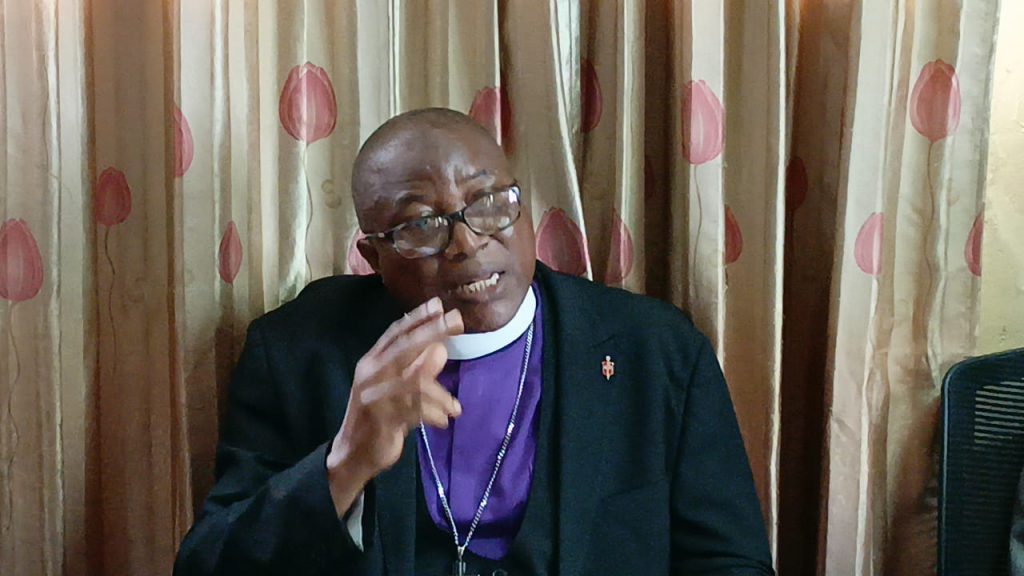The Liberia Annual Conference of the United Methodist Church, led by Bishop Samuel Jerome Quire, Jr., is grappling with a profound dilemma concerning its stance on same-sex marriage and the broader implications of regionalization within the church. On one side, the potential financial support from the global gay Methodist community presents a significant incentive for embracing a more inclusive approach. On the other hand, there are deeply rooted cultural, moral, and biblical beliefs within the Liberian Methodist community that firmly oppose the ordination of gay clergy and the sanctioning of same-sex marriages. Bishop Quire and his colleagues publicly oppose these practices, yet there is an apparent tension between their personal beliefs and the institutional pressures they face. This internal conflict reflects a broader struggle within the church as it seeks to balance financial viability against moral integrity, leaving many Liberians confused and concerned about the church’s future direction.
The divide within the Liberia Annual Conference is evident as church members grapple with the implications of potentially officiating gay marriages in a local church. This dilemma poses significant questions for families regarding the teachings they want to impart to future generations, revealing a clash between the church’s evolving doctrines and traditional values held by local congregants. Many United Methodists in Liberia are feeling caught between a rock and a hard place, as they strive to navigate these turbulent waters while maintaining their faith and cultural identity. A lack of clear guidance from Bishop Quire has intensified this crisis of confidence, leaving the community yearning for more decisive leadership amidst uncertainty and growing fears over the future of their church.
As the controversy surrounding the church’s position on homosexuality escalates, the stigma faced by the Liberia Annual Conference and its members becomes more pronounced. The prolongation of this uncertainty creates a fertile ground for rumors and speculation, thereby amplifying public embarrassment and discontent within the church. Many congregants are starting to distrust Bishop Quire and his cabinet’s ability to provide a coherent and clear path forward, raising critical questions about whether the Liberia Annual Conference will adhere to traditional stances or shift towards a more regionalized approach. This lack of clarity has been compounded by the replacement of outspoken pastors against homosexuality before the annual conference, signaling a troubling precedent and ideological shifts within the church without adequate explanation or justification.
Bishop Quire’s mixed signals have left many feeling perplexed and betrayed as the situation unfolds. Although he professes opposition to the ordination of gay bishops and pastors and the endorsement of same-sex marriage, his actions suggest a reluctance to confront the systemic issues head-on. This has led to a pervasive sense of betrayal among faithful United Methodists who worry that their values and beliefs are being compromised for financial gain or for political appeasement within the church’s hierarchy. As grim consequences loom, including the prospect of protests and possible police intervention, there is an urgent call for the Bishop and the leadership team to clarify their position and provide a decisive plan to reassure their congregation of the church’s commitment to its doctrinal truths.
The intense pressure mounts on the Liberia Annual Conference to act decisively to preserve its integrity and reputation. The differentiation between moral values and financial interests has created a climate of anxiety, which could lead to irreparable damage to the church’s image if not addressed promptly. This precarious situation endangers the core mission of the United Methodist Church as a beacon of hope and spiritual guidance for many in Liberia. United Methodists deserve to know that their leadership is steadfast in defending the teachings of their faith while managing the realities of changing societal norms. As the church encounters mounting internal and external pressures, it must resolve its position definitively to restore trust and unity among its members.
In conclusion, the Liberia Annual Conference stands at a critical crossroads, where the challenges of modernity collide with longstanding traditions and beliefs. Bishop Quire is urged to provide the transparent leadership necessary to guide his congregation through these turbulent times. Immediate and clear communication about the Conference’s direction is essential to craft a path forward that honors both financial realities and moral principles. Ultimately, addressing these issues head-on is crucial not only for maintaining the church’s integrity but also for achieving harmony within the community and sustaining the United Methodist Church’s long-term mission in Liberia. Without such clarity and commitment, the church risks losing its foundational values and the trust of those it serves, leading to damage that could take generations to mend.














